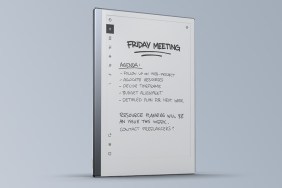You won’t get to play another game quite like Nier: Automata this year. It’s a rare gift that’s different from what you would expect both in its wrapping and in its substance.
Nier: Automata will frustrate many, that’s for sure, myself included. It’s like being punched in the face by a well-dressed person with nicely manicured fingernails, and it’s a really good punch. Sure,…
-
Creative combat system
-
Diverse characters
-
Rich world with lots to do
-
Traditional save points
-
Poor difficulty scaling











